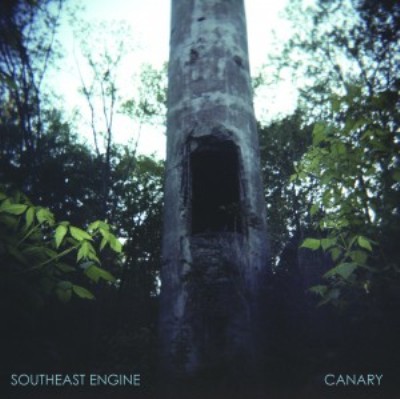Reviews
A time traveling good time with Southeast Engine

Canary
Southeast Engine
Release Date: Mar 29, 11
- 1
- 2
- 3
- 4
- 5
- 6
- 7
- 8
- 9
- 10
During the late 2000s there was a revival in bearded folk musicians singing about their lives in the mountains. And many reviews of these records questioned the authenticity of the artists.
It’s easy to call into question the authenticity of an urban troubadour singing of rough and tumble hard times when wielding a six-string in one hand a six-pack of PBR in the other. Something tells me Brooklyn isn’t home to too many dusty mounts or sun-choked plains. Another question altogether is if “authenticity” is even relevant.
Either way, there is no need to play 21 questions with Southeast Engine on the band’s latest album, Canary, its second with label Misra Records. On Canary, SE puts together a collection of songs that sound like the rightful contemporary soundtrack to their Appalachian foothills home in Athens, Ohio.
The album offers all the traditional and expected sounds of an Americana-folk album –from heavy-keyed pianos and fiddles to the banjo. One thing conspicuously absent from the album, however, is references to Whiskey. Whiskey is also unfortunately absent from my bloodstream right now.
Despite the expected sounds and instrumentation, there is something unique about the record. First off, Canary is a concept album based around the tribulations of a family facing the Great Depression and all that era’s hardships. The album opens, like day break, quiet and slow, with the song “Curse of Canaanville.” The lightly strummed guitar with metallic twang, clear and clean, is laid over plodding drums. The first words on the album, “my mother’s old lantern tolls a light/through the darkness of the night,” evoke an antiquated and vulnerable image. But around the midpoint of the song it picks up to a rolling pace with a banging kick-drum that would encourage foot-stomping from any drunk patron in a small town bar. The song itself is a good model of the album – somber moments with edges tailored by hope or humor to add balance.
The song “1933 (Great Depression)” boasts the tongue-in-cheek line, “what’s so great about the Great Depression?” The song has one of the more modern feels to it on the album and an energy that never really dies out. The lo-fi and fuzzed out guitars might be one of the few nods to fellow Ohioans, Guided By Voices.
On Canary, Southeast Engine walks an odd line. They seem to embrace the old times, the folklore of the Ohio Valley and the music and people that were a product of those Depression era times. This is most evident on tracks like the albums closer, the entirely instrumental, “Sourwood Mountains.” Or on “Adeline of The Appalachian,” wherein right when the word “Appalachian” is sung, the pluck of a banjo is heard, almost entirely too-on-cue. But at the same time they figure the folk music in a new direction that is modern but never pop.
At points, SE sounds like some of its nostalgic contemporaries Old Crow Medicine Show or Langhorne Slim, acts that never shake the image of old-timey music and don’t let contemporary pop indulgences bleed in.
At other times, on songs like “At Least We Have Each Other,” SE breaks that aesthetic, with the vocal melody harmonizing with and following a guitar line as lead singer Adam Remnant, sings “sure things could be better/but at least we have each other.” The song “Mountain Child” sounds more like one of Conor Oberst’s efforts with his Mystic Valley Band.
In short, Southeast Engine is an old-time folk band that speaks with a modern tongue.